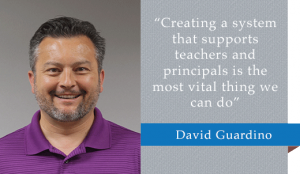Spotlight on David Guardino
Spotlight on David Guardino
 We all want change. We want our schools, communities, families, and even our own lives to change—and change for the better. It is easy to tweak something. It is no issue to edit a few details here and there, put some finishing touches on a project, or polish things up a bit. However, when we want to transform something big—a whole system—we need not only perseverance, but also the ability to see the big picture in perspective. Sometimes, we must step outside of the box before we can adjust what is inside of it.
We all want change. We want our schools, communities, families, and even our own lives to change—and change for the better. It is easy to tweak something. It is no issue to edit a few details here and there, put some finishing touches on a project, or polish things up a bit. However, when we want to transform something big—a whole system—we need not only perseverance, but also the ability to see the big picture in perspective. Sometimes, we must step outside of the box before we can adjust what is inside of it.
David Guardino understands this. Before his work as a program lead in the Research to Practice Division in the Office of Special Education Programs (OSEP), he started out on a small scale, as many systems changers do. During his undergraduate studies in psychology, he volunteered to work with international students. Upon graduation, David opted for an adventure. He moved to South Korea for two years to teach English in small group and classroom settings. He met his wife in Korea and subsequently returned to his home state of Oregon to pursue a degree in education counseling. He worked as a family therapist in a variety of settings, including foster care and drug abuse facilities for adjudicated youth. It was easy for him to see that the students faced a myriad of issues that affected all aspects of their lives from school and social interactions to their home environments. However, when David zoomed out—when he stepped outside of the box and looked into it—he saw that these issues are symptoms of a complex web of social maladies; they are part of a system that is not inherently evil, but is wholly indifferent to personal struggles. David realized that if he wanted to help as many students as possible, he needed to tackle the system as a whole.
Under the direction of Dr. Robert Horner and others at the University of Oregon, David expanded his scope of influence in 2001 by pursuing a doctorate in special education. He worked in varying capacities for the Oregon Department of Education. His counseling background lent well to leading early Response to Intervention (RtI) initiatives concerning implementing Positive Behavioral Supports (PBS). He helped launch a web-based data management application for districts to better collect and utilize data. David directed various initiatives in both special and general education at the state level before moving to OSEP in the U.S. Department of Education.
David believes that the most difficult component of transforming research to practice is providing the appropriate level of support to teachers and leaders who are learning to administer evidence-based practice (EBP) in education. He laments when teachers do not receive the necessary support to carry out EBP and come to the faulty conclusion that the practice does not work when they have never had the opportunity to use it with fidelity.
In order to improve the system, David believes we need to work from the top down, improving teacher preparation programs that can equip educators with wide skill sets so they can accomplish successful teaching practices. The CEEDAR Center team is accomplishing this work, and David believes the CEEDAR Center has a tremendous opportunity to improve the way the teacher preparation system works.
David is in the right place at the right time to influence the landscape of American education through his work at OSEP. He does not back down from a challenge, either. An avid skier and former slalom racer, he is not afraid to face new adventures with tenacity. He also has two daughters in elementary school, which is a challenging adventure in and of itself. He and his wife love to take their daughters hiking. They are still exploring all of the nature the East Coast has to offer after moving there from Oregon.
The CEEDAR Center team is fortunate to partner with David in order to not only fine-tune education, but also to fundamentally and systematically improve educator preparation in the United States.


